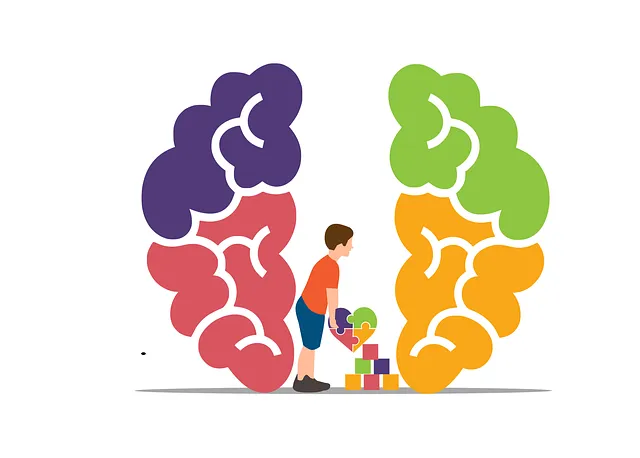Crisis Intervention Teams (CITs) are essential in addressing mental health crises, with trained professionals providing immediate care to prevent hospitalizations and deaths. In Littleton, Kaiser stands out as a leading provider of mental health services, offering comprehensive CIT training programs accessible through their insurance plans. Their focus on cultural competency and mood management techniques aligns with the holistic approach needed for effective crisis response. Effective CIT training equips healthcare providers with skills to support individuals during mental health crises, creating inclusive spaces and better outcomes. Littleton does Kaiser cover mental health services comprehensively, ensuring wide access to essential resources tailored to diverse patient needs.
Crisis intervention team (CIT) training programs play a vital role in equipping communities with essential skills to handle mental health crises. These teams, often comprised of first responders, healthcare professionals, and community members, can significantly reduce harm and improve outcomes. This article explores the significance of CITs, focusing on Kaiser’s mental health coverage for such training programs in Littleton, highlighting key components for effective training. Understanding these elements is crucial to enhancing crisis response and promoting well-being in our communities.
- Understanding Crisis Intervention Teams (CITs): Role and Importance
- Kaiser's Mental Health Coverage for CIT Training Programs
- Essential Components of Effective Crisis Intervention Team Training
Understanding Crisis Intervention Teams (CITs): Role and Importance

Crisis Intervention Teams (CITs) are specialized groups of professionals trained to handle mental health crises effectively. These teams typically include law enforcement officers, paramedics, and mental health professionals who work together to de-escalate situations involving individuals experiencing severe psychological distress or suicidal ideation. The role of CITs is crucial in ensuring that people in crisis receive immediate, appropriate, and compassionate care, often preventing unnecessary hospitalizations or even deaths.
In the context of Littleton and Kaiser’s coverage of mental health services, understanding CITs becomes pertinent as these teams can play a pivotal role in community-based interventions. The importance of such programs is underscored by the need for comprehensive risk assessment strategies (Risk Assessment for Mental Health Professionals) that inform public awareness campaigns development. By enhancing public understanding and promoting early intervention through mental wellness coaching programs development, CITs contribute to fostering a more supportive environment for those struggling with mental health issues.
Kaiser's Mental Health Coverage for CIT Training Programs

In terms of mental health coverage, Kaiser stands out as a notable healthcare provider offering comprehensive support for Crisis Intervention Team (CIT) training programs. Their commitment to addressing psychological crises is evident in various ways. Specifically, Kaiser covers a wide range of mental health services under its insurance plans, ensuring that individuals and organizations can access essential resources for CIT training. This includes crucial components such as assessment, treatment, and rehabilitation, catering to diverse patient needs.
For instance, Littleton residents benefiting from Kaiser’s coverage can expect support in developing effective self-care routines for better mental health management. Additionally, the healthcare provider emphasizes cultural competency training among its staff, aligning with the holistic approach needed in CIT programs. This ensures that interventions are sensitive and tailored to individuals’ unique backgrounds, fostering inclusive crisis response strategies. Moreover, mood management techniques often form a significant part of Kaiser’s coverage, enabling participants to gain valuable skills for handling acute mental health episodes effectively.
Essential Components of Effective Crisis Intervention Team Training

Effective crisis intervention team (CIT) training programs are pivotal in equipping healthcare providers with essential skills to navigate and support individuals in mental health crises. A comprehensive CIT training should incorporate several key components, ensuring a multifaceted approach to emotional healing processes. Firstly, it must emphasize cultural competency, fostering an environment where diverse backgrounds and perspectives are understood and valued. This aspect is crucial, especially when addressing the unique needs of underrepresented communities, as Littleton does Kaiser cover mental health services accordingly.
Secondly, training should delve into the de-escalation techniques, crisis management strategies, and communication skills that promote understanding and empathy. Mental illness stigma reduction efforts must also be a central focus, encouraging participants to challenge stereotypes and create inclusive spaces for those struggling with mental health issues. By integrating these elements, healthcare provider cultural competency training can become a powerful tool in the community’s response to mental health crises, fostering better outcomes and a more supportive environment.
Crisis Intervention Team (CIT) training programs play a vital role in equipping community members with the skills to handle mental health crises effectively. As discussed, these teams are crucial in de-escalating situations and providing immediate support. Kaiser’s coverage of CIT training ensures access to specialized education, fostering better mental health outcomes. By understanding the essential components of such training, communities can create robust CIT programs that save lives, especially in areas like Littleton where mental health resources are vital.






